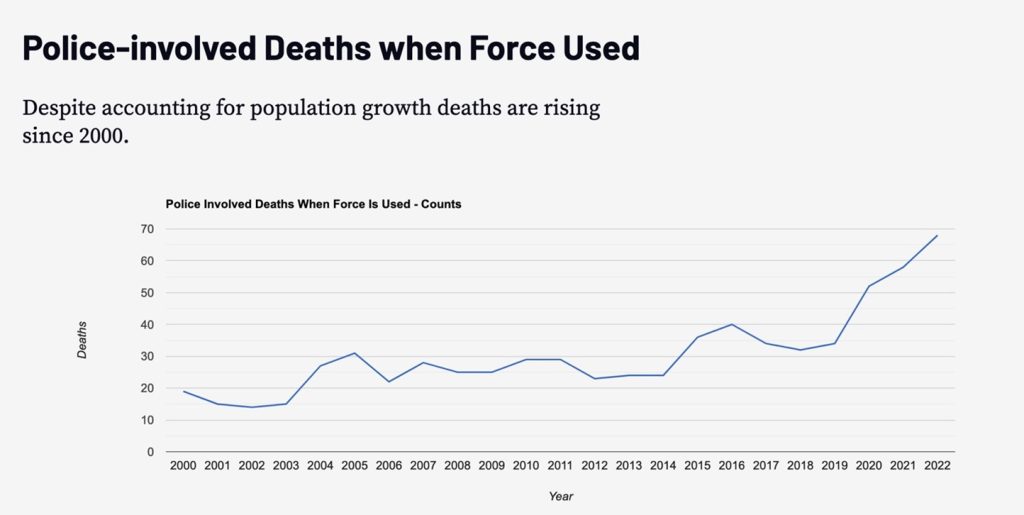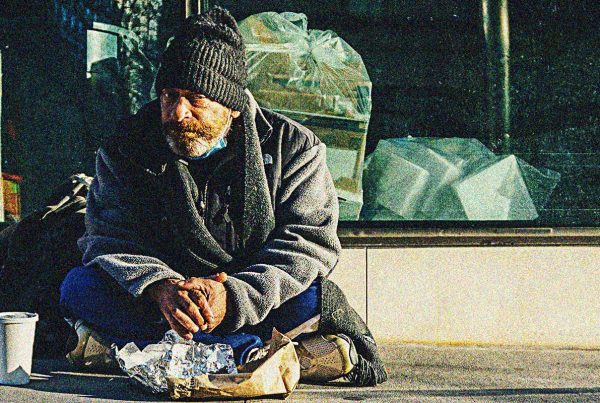Publicly accessible online database tracking police-involved deaths launched
Database website: https://trackinginjustice.ca/
CCLA welcomes the launch of a publicly accessible online database tracking police-involved deaths across Canada. The database is part of a collaborative project tracking police-involved deaths where force was used from the year 2000 to present day.
The database fills a critical gap in the information previously publicly available and highlights that Canada is not immune to the repercussions of an issue we often like to characterise as more relevant elsewhere. It is designed to allow advocates, members of the public, and other interested parties to do deep dives into data derived and aggregated from publicly available sources, including government reports, press releases, and reliable media releases to investigate the scope and nature of police use of force incidents resulting in deaths. The data is available to the public for their own access and analysis and includes information on date, location, police force, level of force used, and when known, age, race, and gender.
Some key facts discernable from the data include
- Since 2000, 704 people have died during police use of force encounters across Canada.
- 69 people died in 2022 from such interactions, setting a grim record as the highest number in the last 20 years
- An average of 22.7 people died in association with a police use of force encounter from 2000- 2010. In comparison, from 2011-2022, an average of 37.8 people died each year. This represents a 66.5 percent increase.
- According to the 2016 census data, Black people make up only 3.8 percent of the total population but they are represented in 8.1 percent of police-involved deaths.
- While 5.1 percent of people living in Canada are Indigenous, 16.2 percent of people killed in police involved deaths are Indigenous.
- Shooting-related deaths account for 73 percent of all police-involved use of force deaths since the year 2000 across Canada, with the majority in Ontario, Alberta, Quebec, and British Columbia.
- At the federal level, the Royal Canadian Mounted Police, and at the provincial level, the Ontario Provincial Police and Sûreté du Québec police forces are implicated in a high number of deaths.
- At the municipal level, the Toronto Police Service is implicated in the greatest number of deaths, with 65 people killed in use of force encounters since 2000.
- Despite ranking as Canada’s fifth largest municipality by population according to the 2021 census, the Edmonton Police Service (EPS) is ranked second behind Toronto with 39 killed in use of force encounters since 2000 and is tied with the Service de police de la Ville de Montréal (SPVM).

Despite vital grassroots efforts to keep track of police violence, there has been no national government or civil society body tracking police-involved deaths in Canada. In a context of increased calls for police accountability and concerns over the rising costs of policing, the Tracking (In)Justice project aims to fill a longstanding gap in Canadian policing data. It does so, moreover, in full recognition of the longstanding, systemic discrimination within the justice system that exposes some people more at risk than others.
While the project aims to expand what it collects over time, initial data currently covers deaths that followed from any intentional police use of force. This means that the data includes deaths from police shootings and instances where a person died after being subjected to other types of police weapons (e.g., guns, tasers, batons) or physical interventions (e.g., punches, kicks, physical holds).
The project’s goal is to document all deaths that occur during police operations, as well as all deaths that occur in Canada’s jails, prisons, immigration detention, or forensic psychiatry centres. The project team will continue to expand the database, in order to support calls for greater transparency and accountability from those on the front lines of the criminal justice system.
Who is engaged in this work:
Tracking (In)Justice is a law enforcement and criminal justice data and transparency project. We are a collaborative partnership comprised of the Data and Justice Criminology Lab at the Institute of Criminology and Criminal Justice, Carleton University (ICCJ), the Center for Research and Innovation for Black Survivors of Homicide Victims (CRIB) at the University of Toronto, the Canadian Civil Liberties Association (CCLA), the Ethics and Technology Lab at Queen’s University, Aboriginal Legal Services, Empowerment Council, JusticeTrans, Maggie’s Toronto Sex Workers Action Project, and Women’s Health in Women’s Hands.
More in-depth data & analysis:
To help people understand what is possible with the online database, the project has released series of short primers on the general findings within the database, including on examining racial disparities, geographic location, the police force involved, the types of force used, as well as a backgrounder on policing in Canada. More details at the links below:
Police-involved Deaths are on the Rise, as are Racial Disparities in Canada:
A look at recent trends in police-involved deaths in Canada
https://trackinginjustice.ca/analysis-increase-in-deaths-and-racial-disparities/
A Look at Police-Related Deaths by Jurisdiction and Type of Force Used:
A closer look at police-involved deaths by province and territory, and type of force used
https://trackinginjustice.ca/analysis-jurisdiction-and-force
Historical and Contemporary Context of Crime, Policing, Colonialism and Discrimination: A broad review of the contemporary and historical context of policing, crime, discrimination, and colonialism in Canada
https://trackinginjustice.ca/analysis-crime-policing-colonialism-and-discrimination/
About the Canadian Civil Liberties Association
The CCLA is an independent, non-profit organization with supporters from across the country. Founded in 1964, the CCLA is a national human rights organization committed to defending the rights, dignity, safety, and freedoms of all people in Canada.
For the Media
For further comments, please contact us at media@ccla.org.





